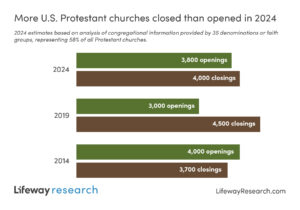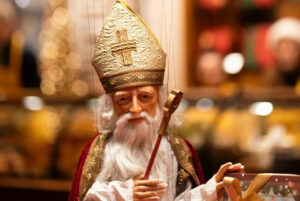FRESNO, Calif. (BP) — California Christian baker Cathy Miller, who won two lower court battles in her refusal to custom design a wedding cake for a lesbian couple, continued to plead her case for individual religious freedom Dec. 17 in a California appeals court.
“It takes a special kind of spite to spend almost a decade bullying a small-business owner because she wants to run her bakery without sacrificing her Christian faith,” Eric Rassbach, vice president and senior counsel at Becket Law, said in a press release as the case continued in California’s Fifth District Court of Appeals. “Doesn’t California have enough problems without picking yet another culture war fight? It’s high time for the court to bring the state’s baseless campaign to a close and allow Cathy to bake in peace.”
Becket Law joins Thomas More Society and LiMandri & Jonna LLP in representing Miller in the case that dates to 2017, when Miller refused to bake a cake celebrating the union of Eileen and Mireya Rodriguez-del Rio. Instead, she told them of her religious beliefs and aligning business practice, and referred them to another bakery.
Miller’s case is one of the latest in a long line of cases centered on individual religious freedom. Several cases have been decided by the U.S. Supreme Court, but conflicting rulings have failed to establish a precedent.
Miller suffered public backlash including angry social media posts, harassing emails and phone calls threatening rape and death, but won initial and subsequent court cases when the California Department of Fair Employment and Housing tried to force her to either bake cakes for lesbian marriages or stop baking wedding cakes altogether, thereby giving up 40 percent of her business.
The state accuses Miller of violating the Unruh Civil Rights Act, and filed its latest appeal in October 2023 to the Fifth District Court of Appeals, where oral arguments were heard Dec. 17. Concurrently, Miller’s defense argues, the state has “engaged in repeated mischaracterizations of Miller’s beliefs and publicly compared her to vile racists, while turning a blind eye to the hate crimes that she and her staff have suffered.”
Among the attacks noted in the brief Miller’s attorney filed in response to the appeal, Miller’s car with a Tastries logo was broken into and her laptop stolen, “but at no point has the Department responded to these instances of threatened and actual violence,” the appeal reads. “The Department’s bias is another reason its appeal should fail.”
“Miller should not be forced to make the choice between upholding her faith and operating her business,” her attorneys have said in her defense. “Americans have the freedom to bring their beliefs into the public square without being prosecuted by government officials.”
Among similar individual religious freedom cases, the U.S. Supreme Court in a 7-2 opinion in 2018 upheld the right of Colorado baker Jack Phillips to refuse to bake cakes for same sex couples, after a protracted legal battle with the Colorado Civil Rights Commission. But after the ruling, the state resumed the fight on grounds that remained unsettled, with the legal battle only ending six years later.
But in the case of Washington florist Barronelle Stutzman, the U.S. Supreme Court refused to hear her case, letting stand the state Supreme Court ruling that she was guilty of discrimination. The owner of Arlene’s Flowers in Richland, Wash., had refused to design flowers for the wedding of homosexual couple Robert Ingersoll and Curt Freed, who sued her in 2013.
The lengthy court battles can take a toll on those caught in the middle.
Joe Kennedy, a Seattle high school football coach who had to go to the nation’s highest court to win the right to pray on the football field before games, resigned shortly after his victory that followed a battle of nearly eight years.








